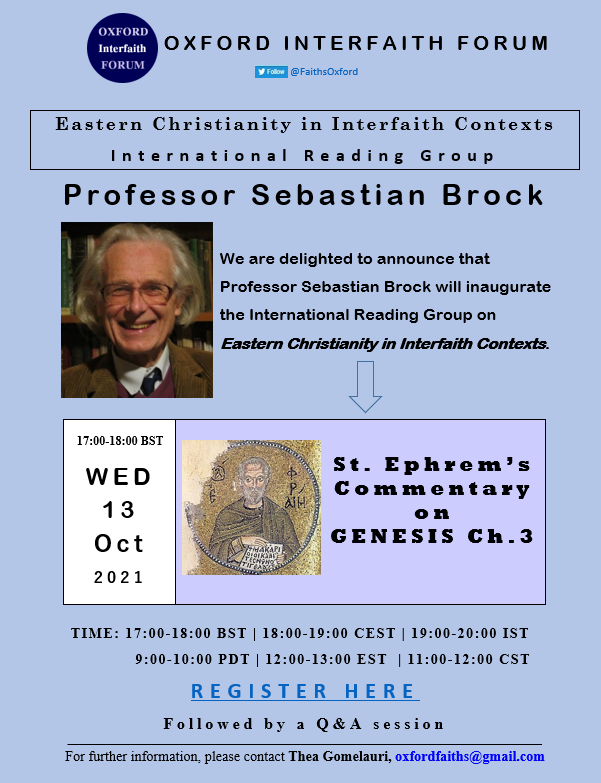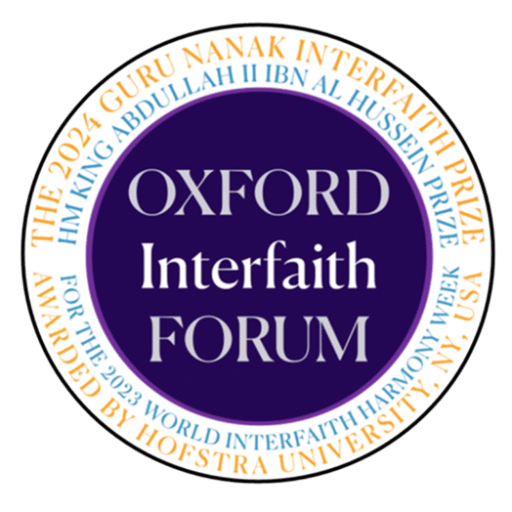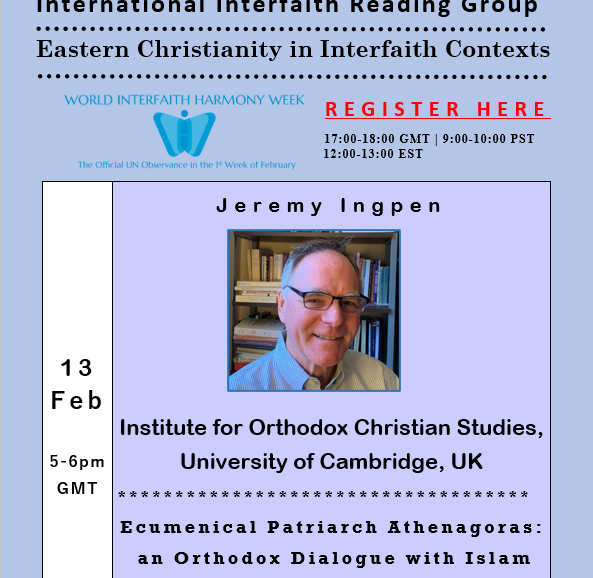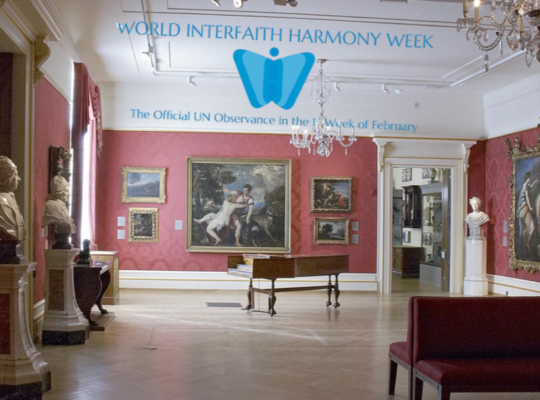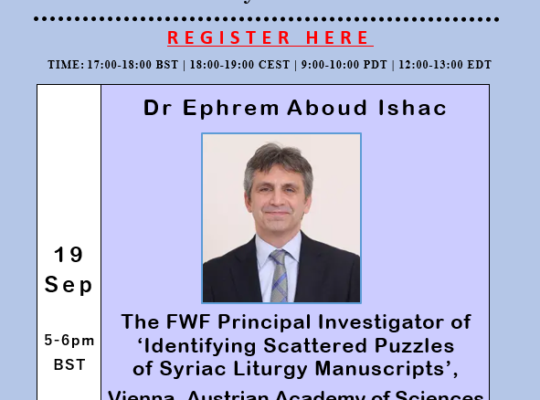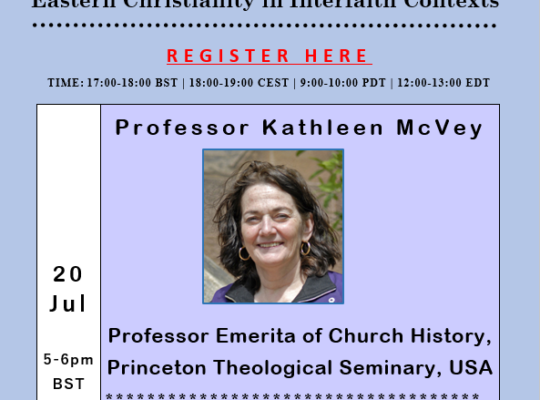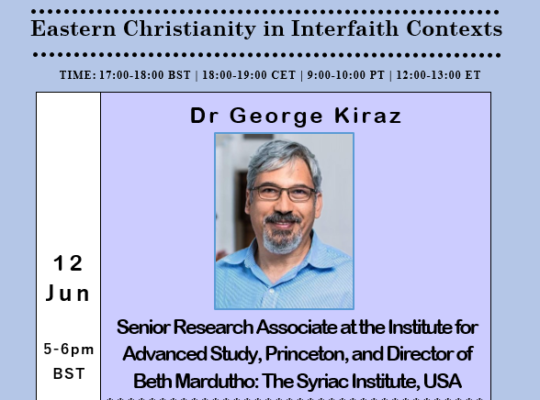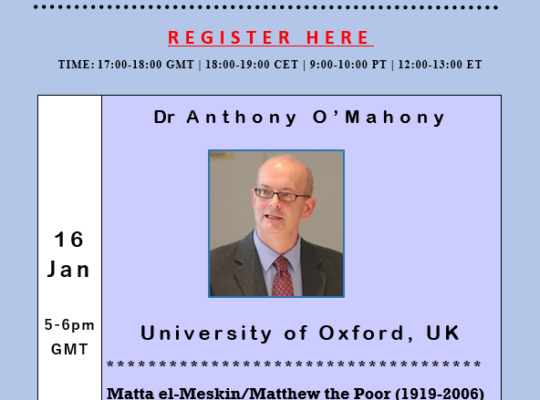13 February, 2023
We are deeply honoured to welcome Jeremy Ingpen, Institute for Orthodox Christian Studies, University of Cambridge, UK, to lead a session of the International Interfaith Reading Group on Eastern Christianity in Interfaith Contexts. This event is part of the World Interfaith Harmony Week.
Here are the details of this fascinating session.
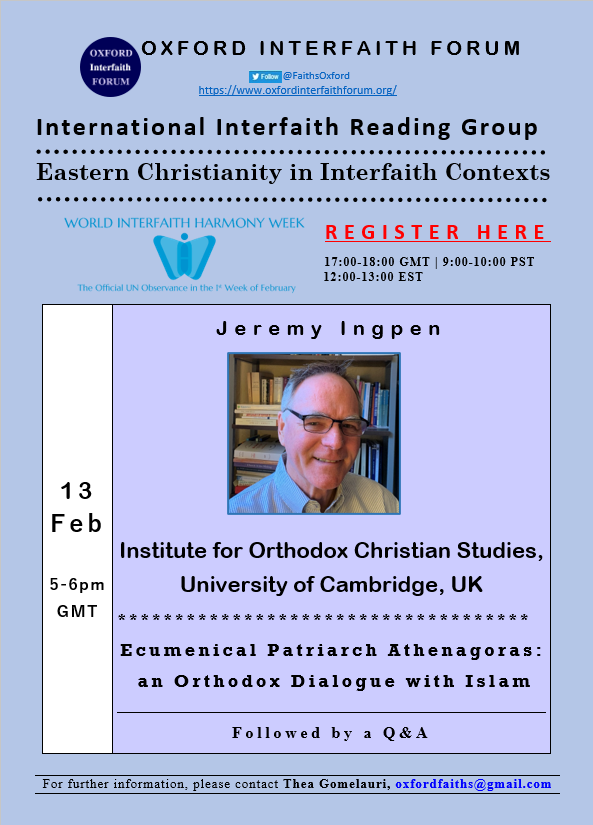
Topic: Ecumenical Patriarch Athenagoras: an Orthodox Dialogue with Islam
Abstract: The recent publication of the English translation of Olivier Clément’s Dialogues with Patriarch Athenagoras (Holy Cross Orthodox Press, 2022) brings one of Clément’s major works to the English-language reader. In his Foreword, Archbishop Elpidophoros, Greek Archdiocese of America, describes the book as “the key that unlocks the treasure chest of Orthodox Christianity…” The Dialogues take you into the heart of the Church’s relationship with the world, to the heart of what it means to be a Christian in today’s world.
In 1968, Athenagoras, Patriarch of Constantinople, invited the French Orthodox theologian, Olivier Clément, to Istanbul, to explain the student uprisings and social turmoil of May 1968. Clément spent several weeks at the patriarch’s side, in constant conversation. He wrote the Dialogues with Patriarch Athenagoras on his return to France. (Dialogues avec le Patriarche Athénagoras, Paris, Fayard, 1969, 2nd Edition, 1975)
This session focuses on one aspect of their dialogue, the interaction of Christianity with Islam. Athenagoras proposes that Islam is “a rebirth of the faith of the forefathers and patriarchs.” In his book of dialogue with Islam, Un Respect Têtu (1989), Clément writes: “The message of Mohammed is a challenge to a Christianity that is established, divided and closed off. Against Christianity’s claims to have captured … and to monopolise grace … Islam summons us to the mysterium tremendum of the Inaccessible One, the imminence of the judgment, the eschatological nature of the feast to which we are invited.”
We will hear four passages from Dialogues with Patriarch Athenagoras that take us from the Patriarch’s childhood village in Northern Greece, to his early years as an archdeacon in Monastir, Macedonia, and then into his dialogues with Clément. We then hear from Clément himself as he contemplates the empty spaces of Hagia Sophia.
Speaker: Jeremy Ingpen, Institute for Orthodox Christian Studies, University of Cambridge, UK.
Speaker’s biography: After a career in management consulting and affordable housing, Jeremy N. Ingpen (BA, Oxford, Modern History; MA, Reading, European Studies) started translating the work of French Orthodox theologian Olivier Clément in 2013. His translations include: Clément’s Transfiguring Time, 2019, Michel Evdokimov’s Two Martyrs in a Godless World, 2021, and Clément’s Dialogues with Patriarch Athenagoras, 2022. He is pursuing a post-career doctorate on the life work of Olivier Clément, with the working title The Face is the Prophecy of the Kingdom: an introduction to the work of Olivier Clément.
Chair: Professor Sebastian Brock FBA, University of Oxford, UK
Date: 13 February, 2023
Time: 17:00-18:00 GMT | 9:00-10:00 PST | 12:00-13:00 EST
Venue: online
After registering, you will receive a Zoom email containing information about joining the meeting. If you do not see the Zoom email in your inbox, please, check your spam folder.
If you would like to join the Eastern Christianity in Interfaith Contexts Reading Group, please sign up here.
Related Sessions
- The Peshitta and the Making of the Antioch Bible
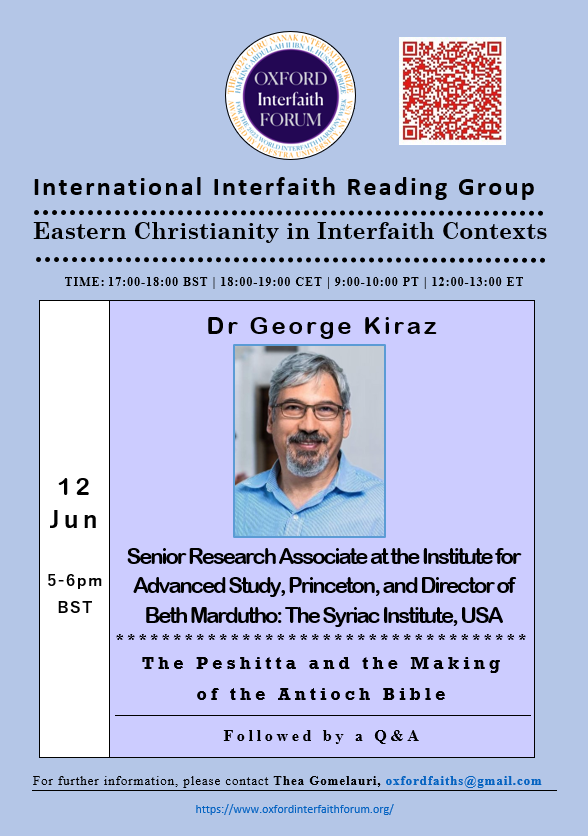
- Narsai’s Memra 49, on Adam and Eve: O Instructive Fault!
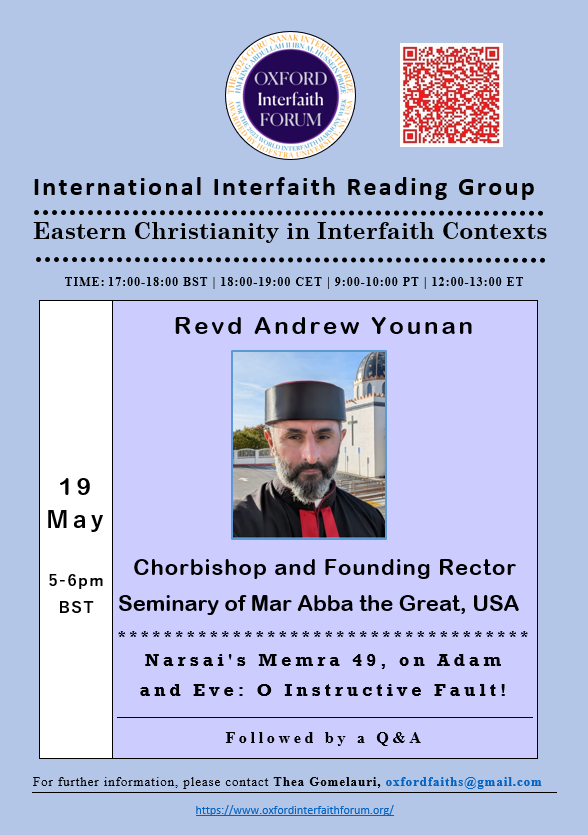
- Basil of Caesarea and Gregory of Nazianzus on the Problem with the Devil
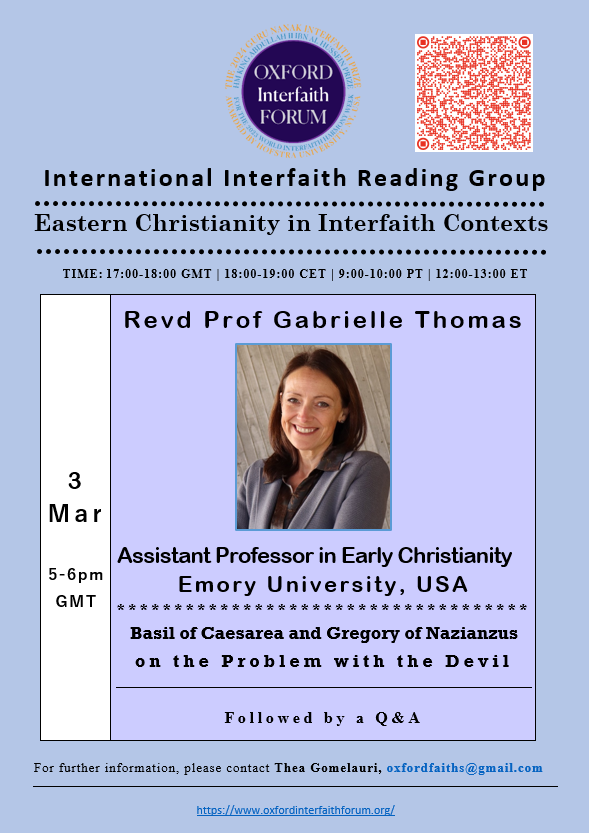
- Byzantine Aristocrat, Monk, Mystic and Dissident: Symeon the New Theologian (949-1022)
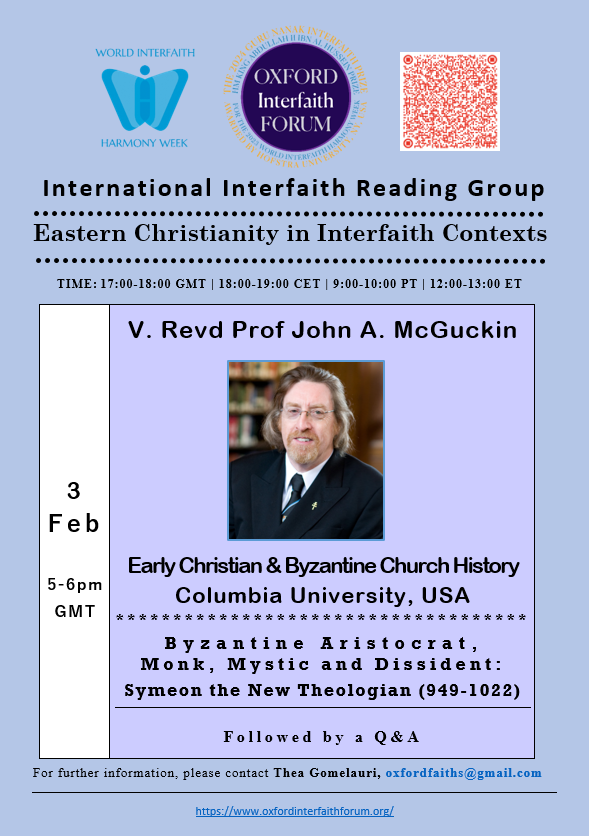
- Heavenly Hours: Creation and Time in the Syriac Testament of Adam
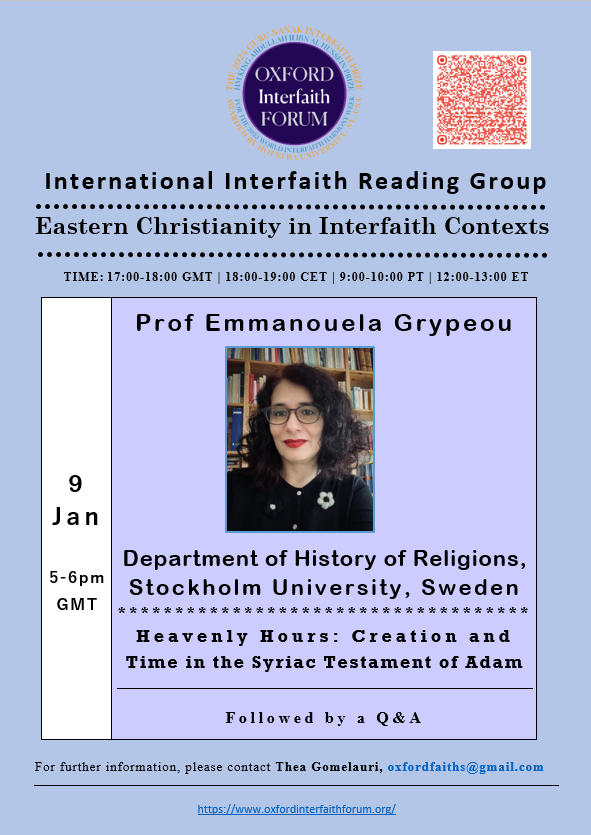
- The Monastic Homilies of Isaac of Antioch
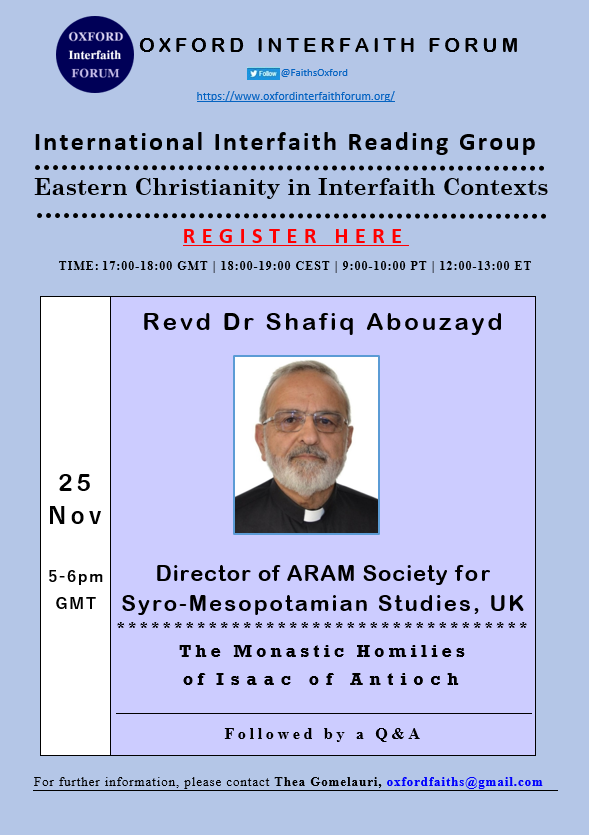
- Christian Trees
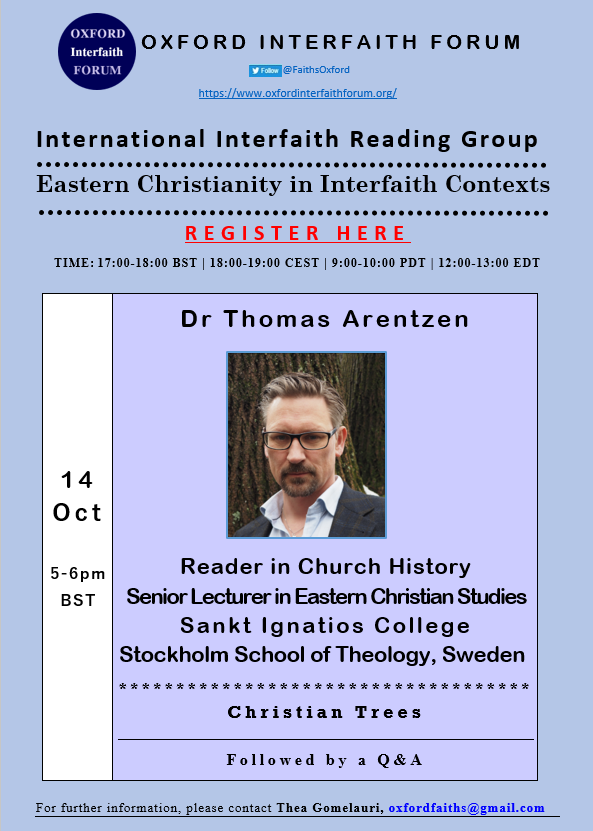
- Dialogue and Fire in a Fragmentary Syriac Martyrdom Narrative
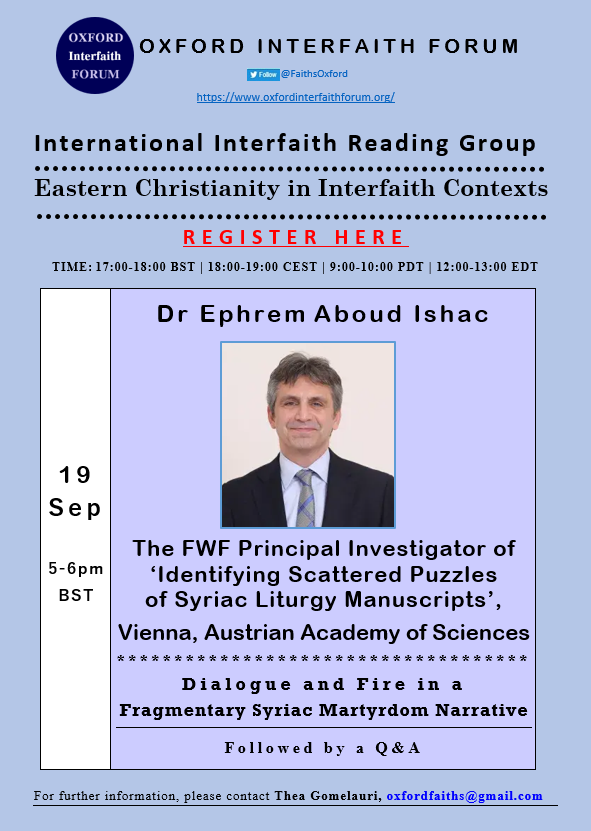
- The Origins of the First Anti-Jewish Good Friday Hymns
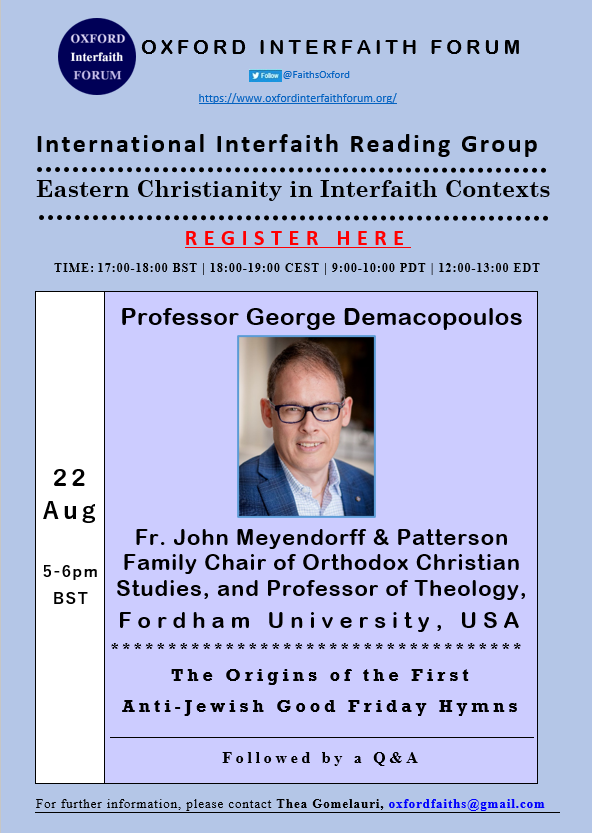
- Finding a Home: The West Syriac Context of the Clementine Epistles on Chastity
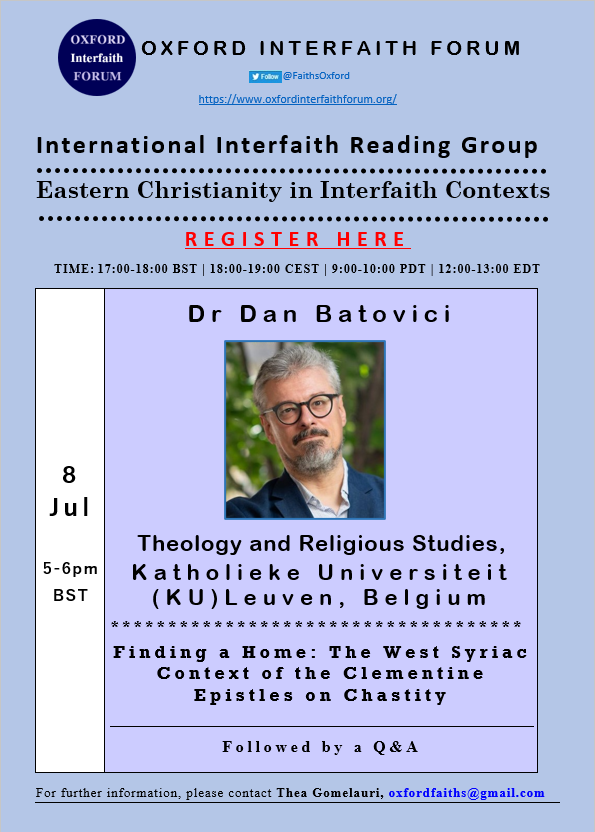
- Who was Mary, the Blessed Virgin and Mother of God? A Byzantine hagiographical narrative by the ninth-century Monk Epiphanios
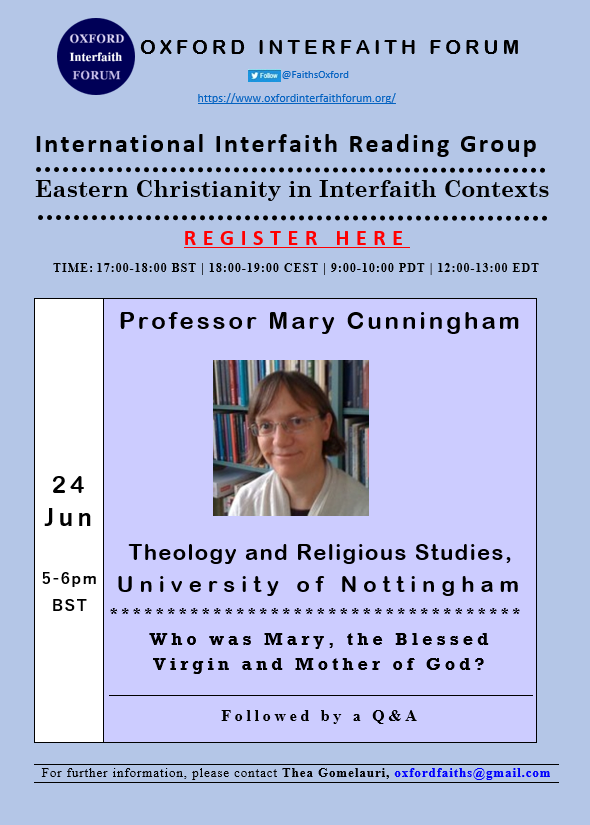
- Nikos Kazantzakis and Orthodox Christianity
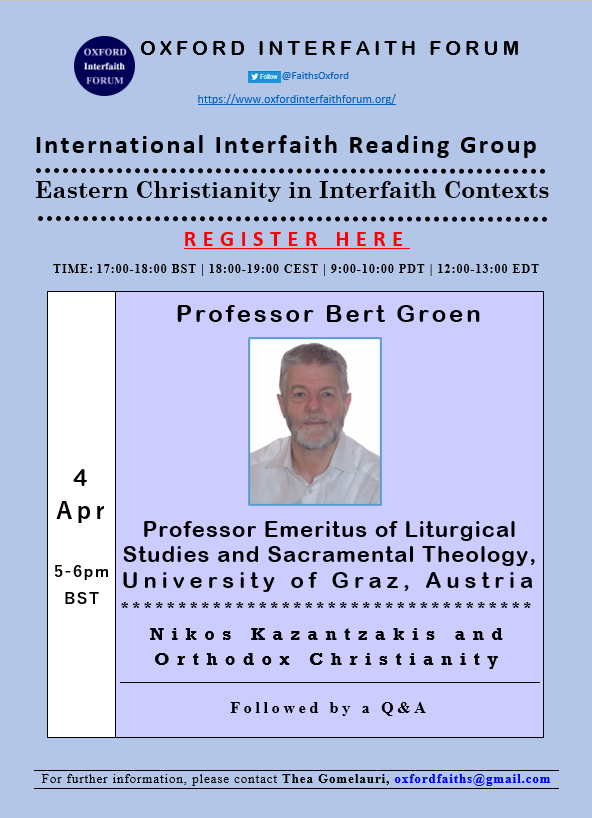
- The Miracle of Pilgrimage: A Coptic Journey to the Holy Land During the Ottoman Period
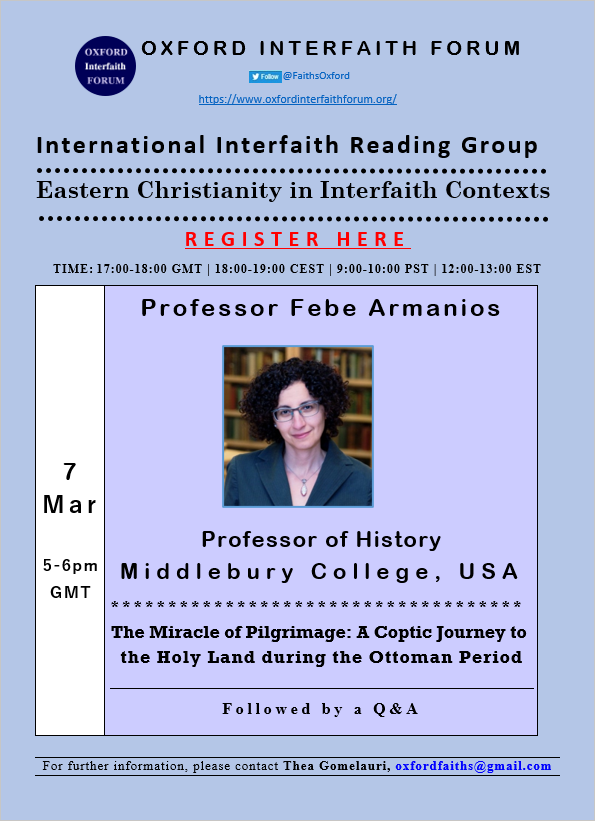
- Setting the Stage: The Rose of Performance in Studying Late Ancient Hymnody
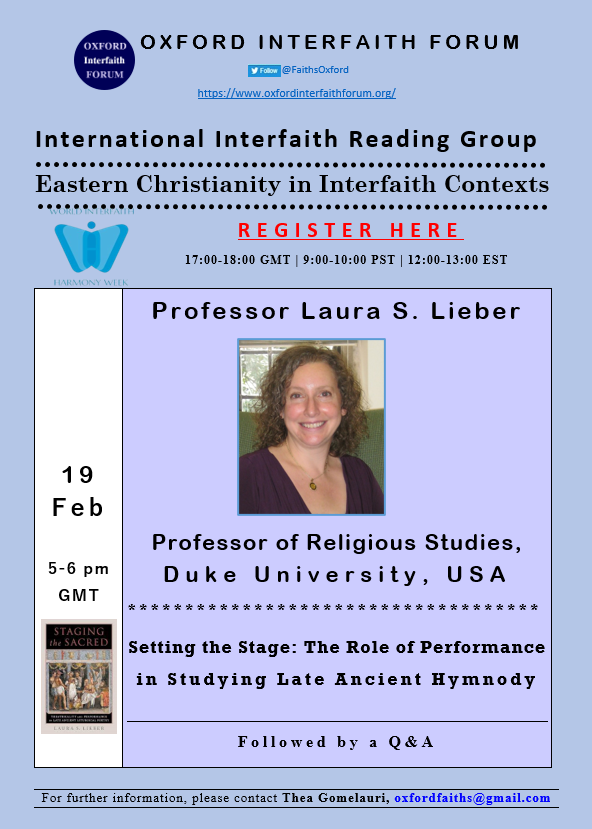
- Ephrem the Syrian and a New Beginning in Syriac Poetry
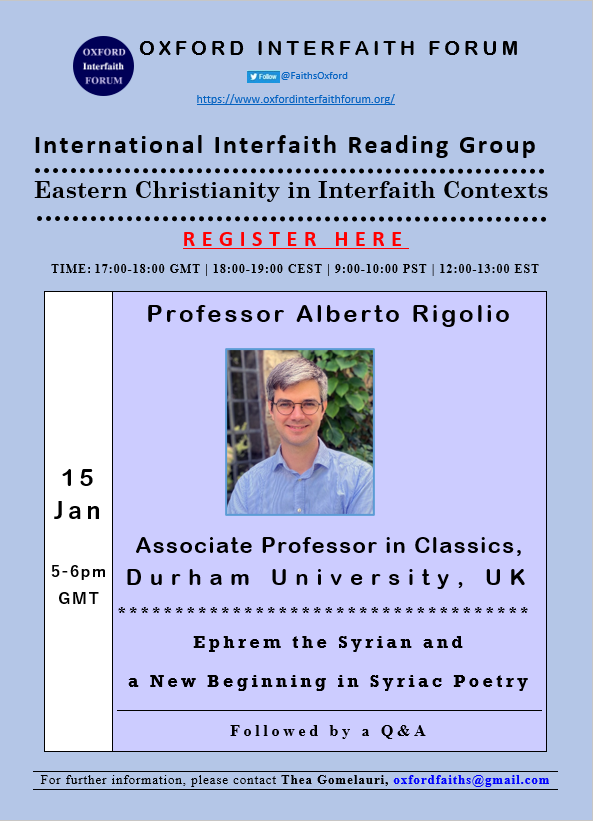
- A Jew Reads the Gospels in Syriac: Azariah de Rossi’s Critique of the Vulgate (1577)
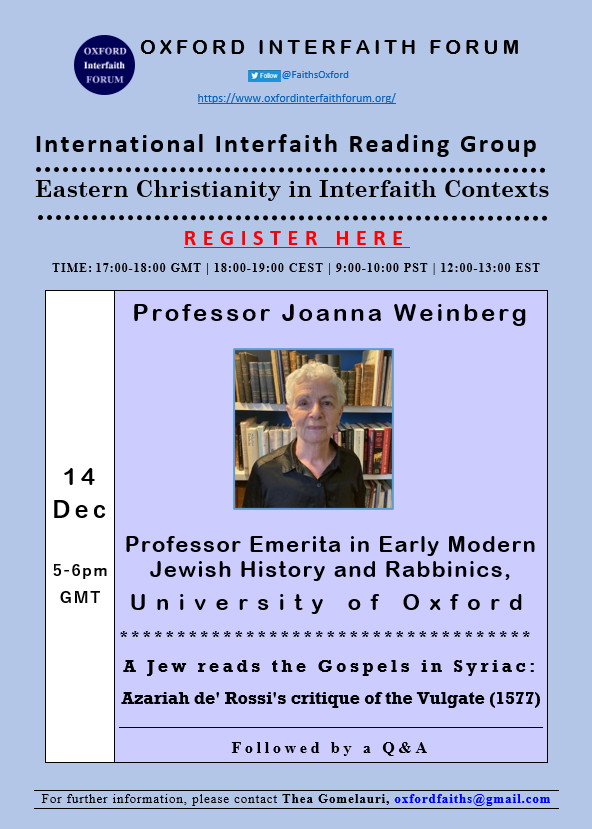
- The Manuscript Project at the Coptic Monastery of St Paul the Hermit at the Red Sea, Egypt
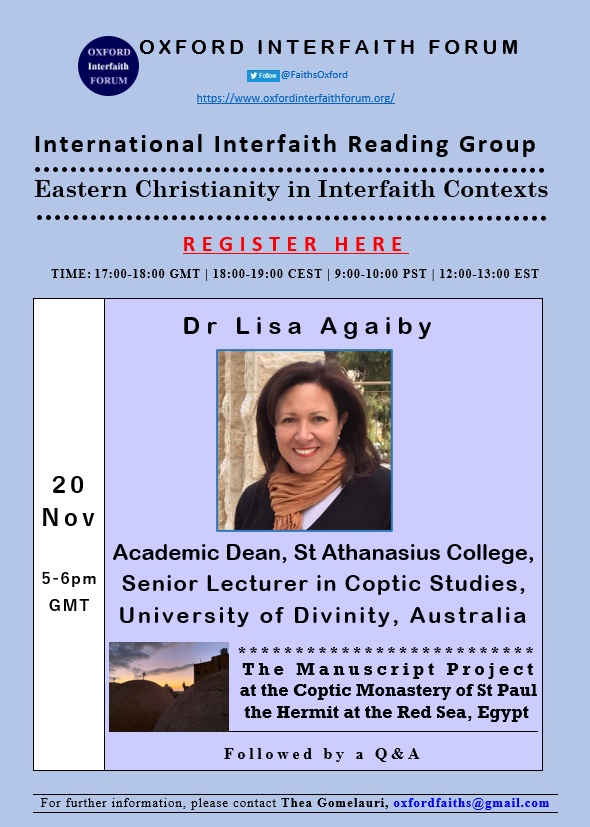
- Mary’s Ordeal: A Syriac Narrative Poem on Many and Joseph
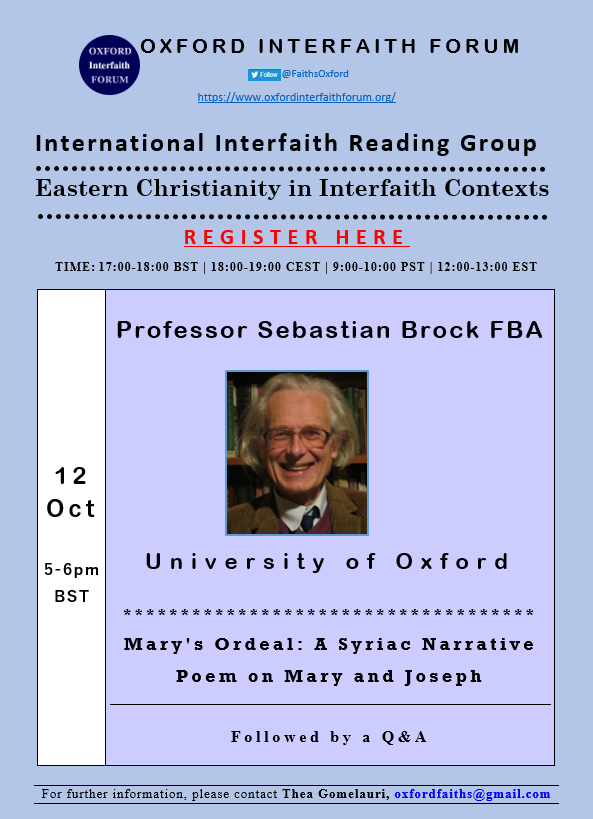
- Resurrection of the Human Body according to John of Dara’s Mimro I:4
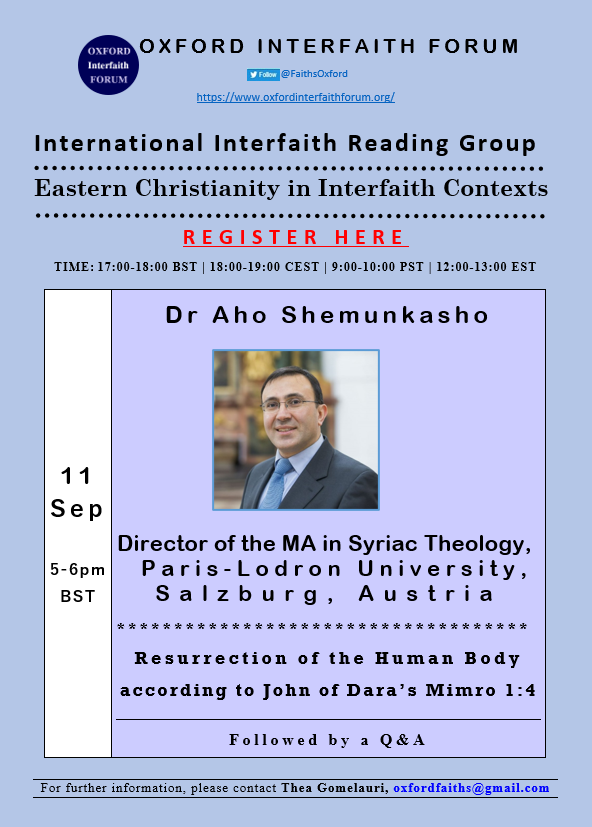
- Gregory of Nyssa: On the Human Image of God
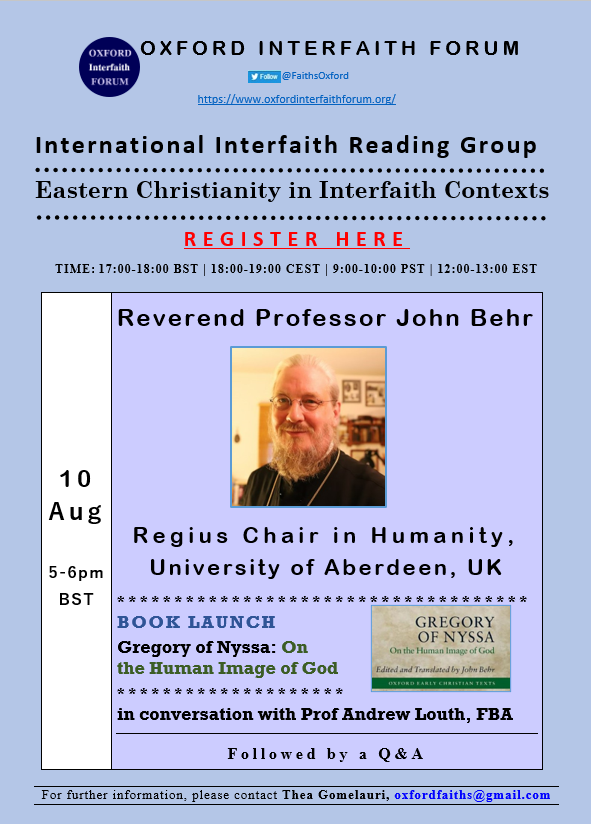
- ‘Conception by ear’ and Redemption of the Human Sensorium in Ephrem’s Thirty-fifth Madrasha on the Church
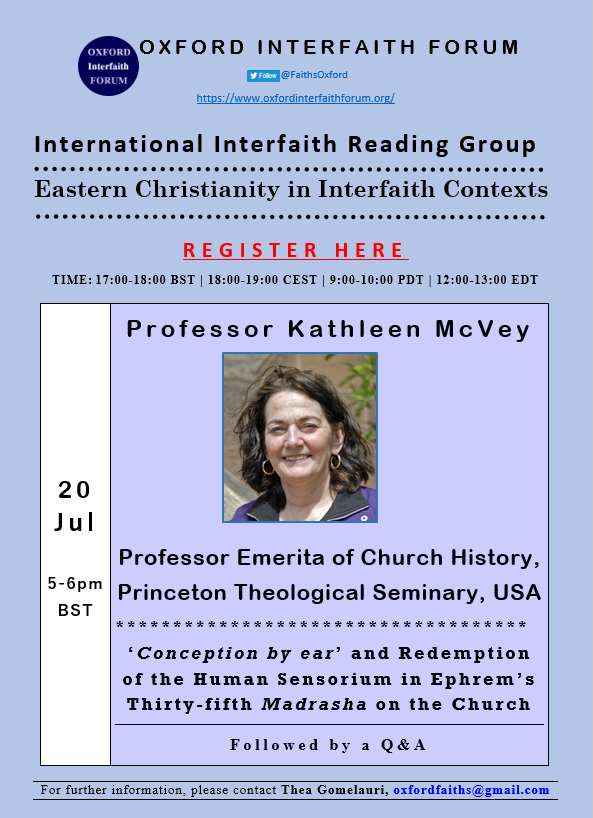
- From Edessa to South Arabia and Back: The Syriac Story of Bishop Paul and Priest John and Models of Sanctity in the Medieval Middle East
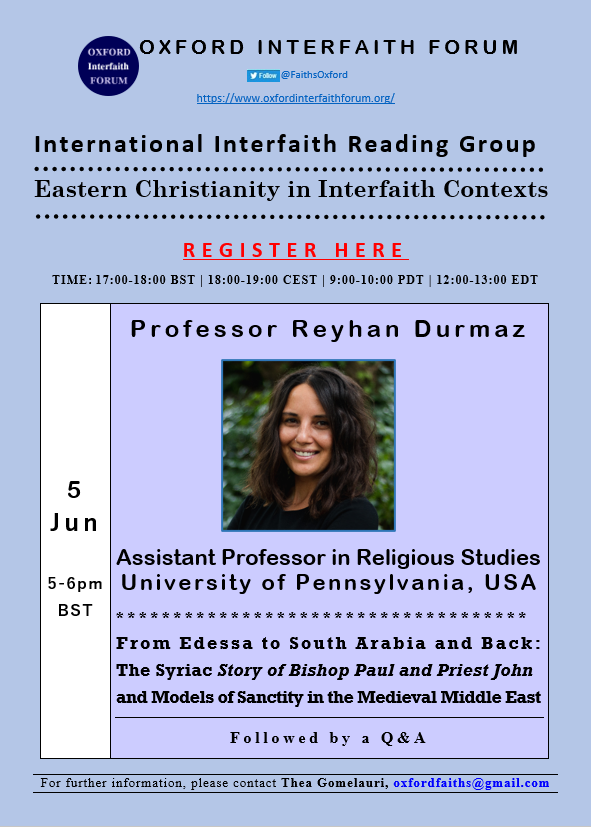
- Wrestling with Calculating-Thoughts: Mental Training according to Evagrius of Pontus
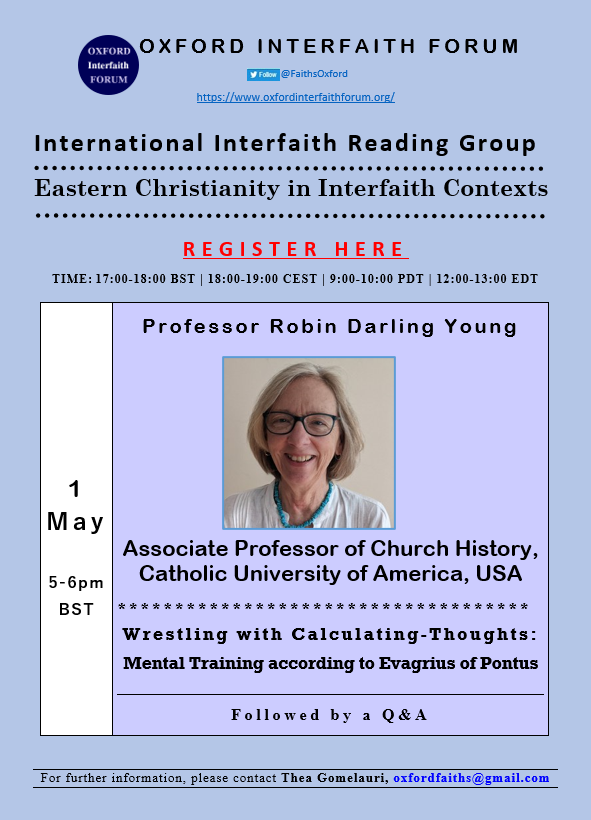
- Returning the Ticket: God and Evil in the Brothers Karamazov
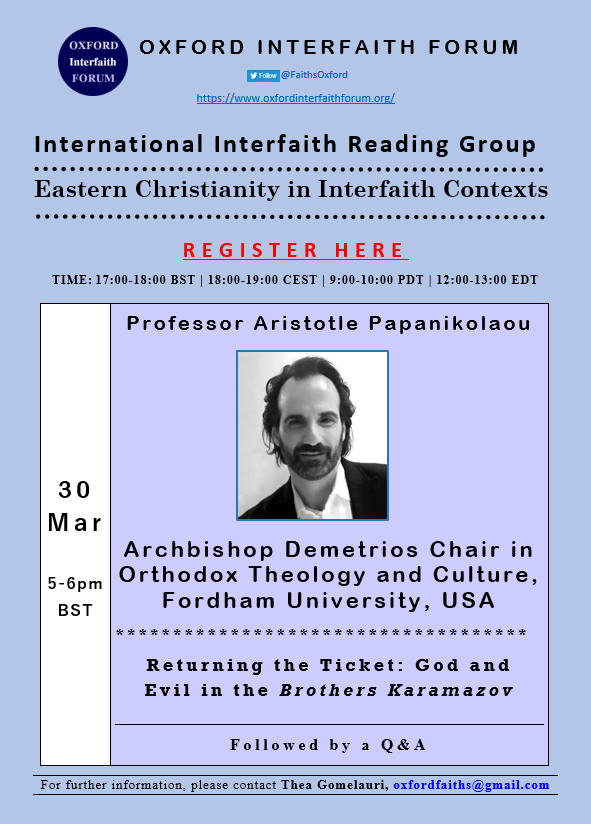
- Ecumenical Patriarch Athenagoras: an Orthodox Dialogue with Islam

- Matta el-Meskin/Matthew the Poor: a ‘Contemporary Desert Father’ on Christian Unity
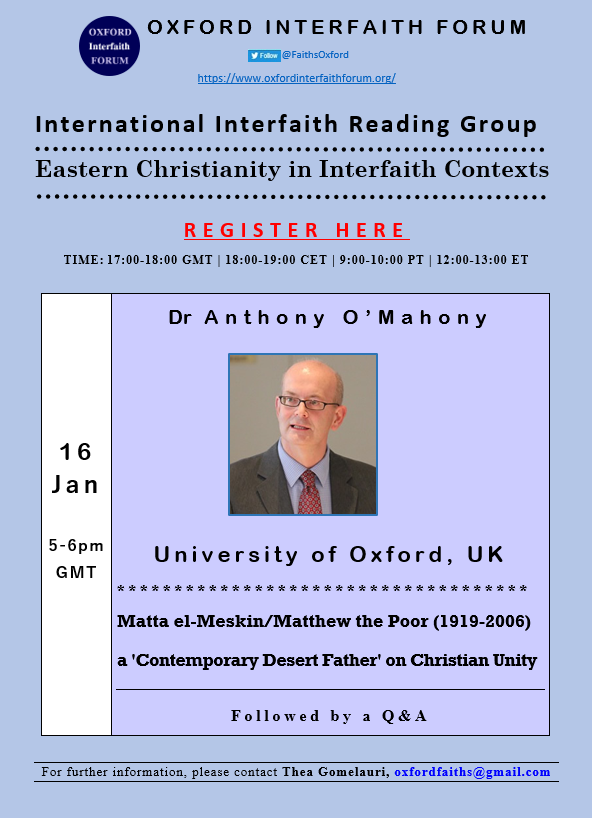
- Signs of Miraculousness: The Inimitability of Jacob of Serugh’s Teaching
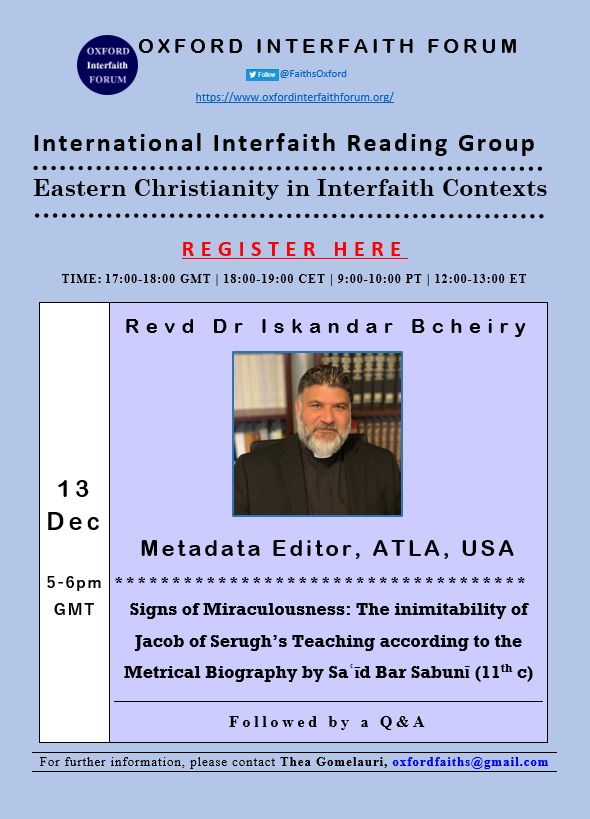
- Epistolary Style in Coptic Letters from the Late Third Century to the Early Fifth Century
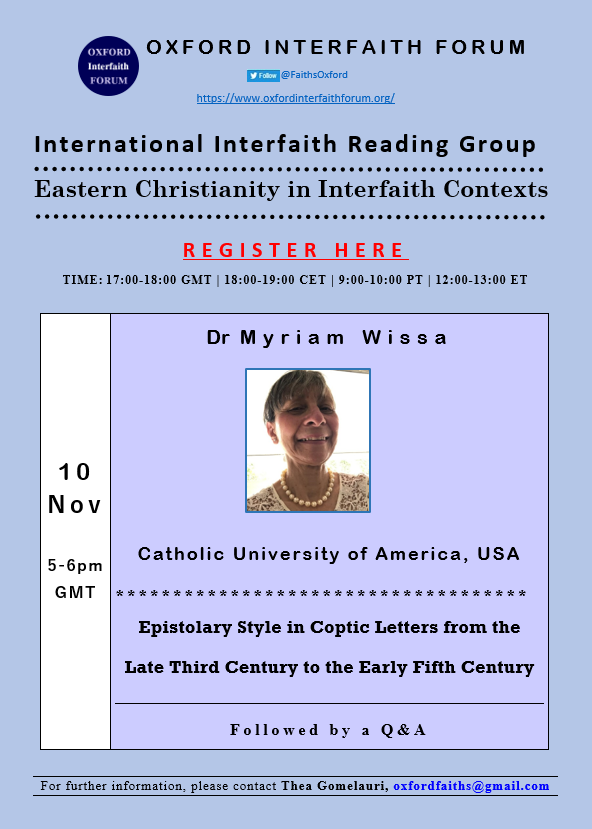
- Sarah and the Akedah: a Syriac Narrative Poem on Genesis 22
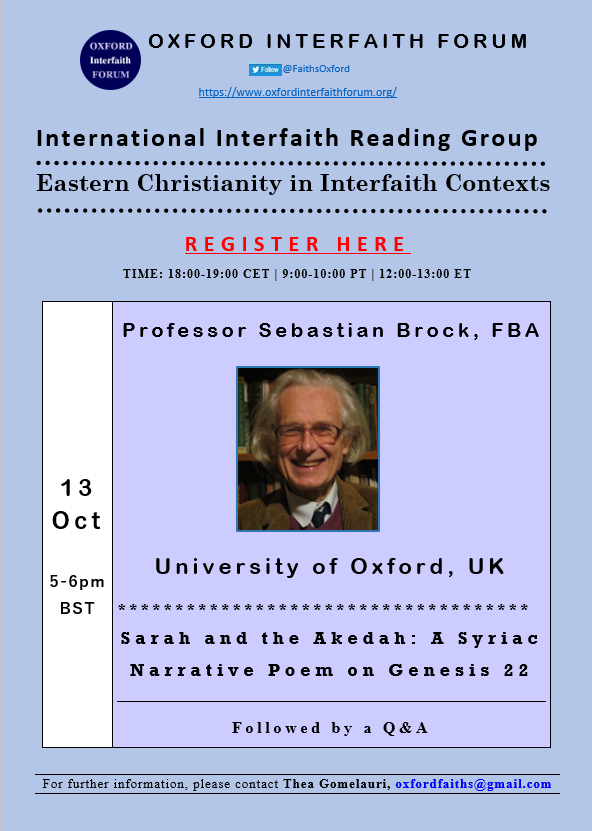
- The Paterik of the Kyivan Caves Monastery: Monk Polikarp in Discourse 14
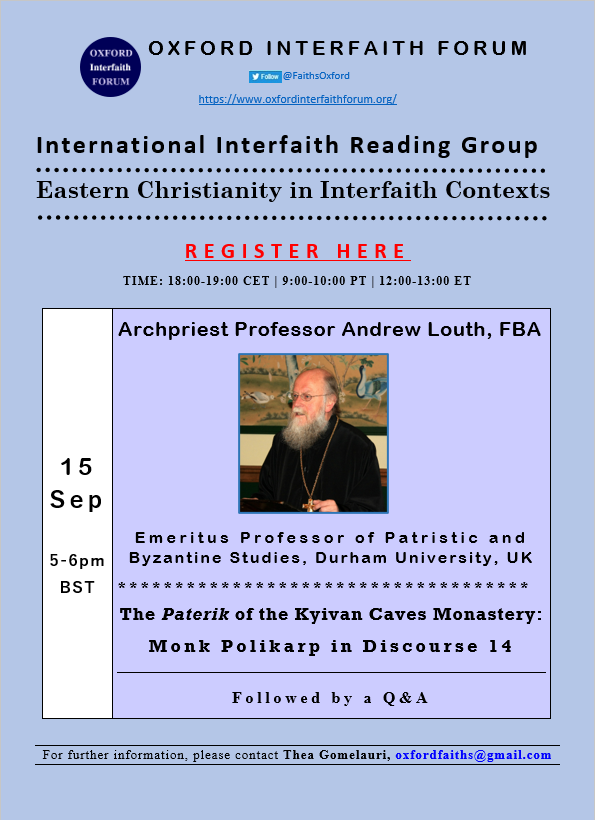
- Jacob of Sarug on the Canaanite Woman (Mt 15:21-28, Mk 7:24-30): Biblical Storytelling and Models of Faith
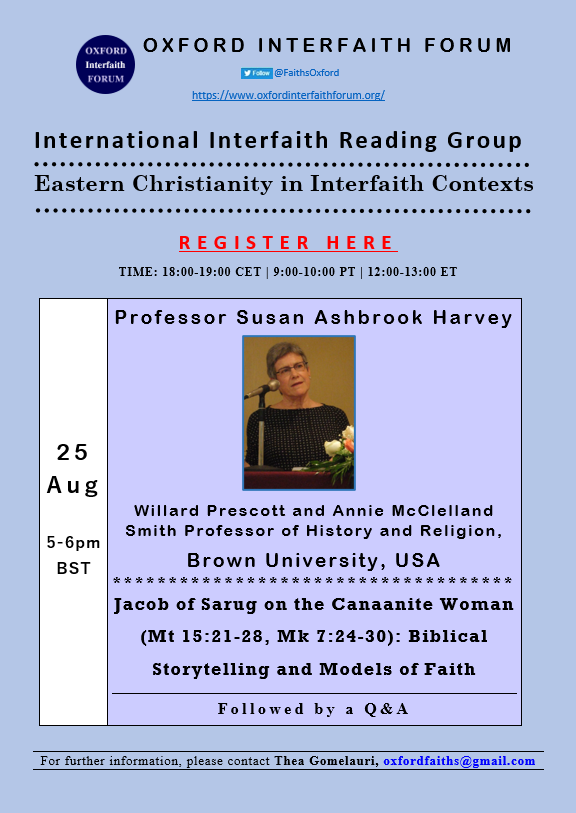
- Commemorating the saints at Turfan: Mart Shir and Mar Barshabba
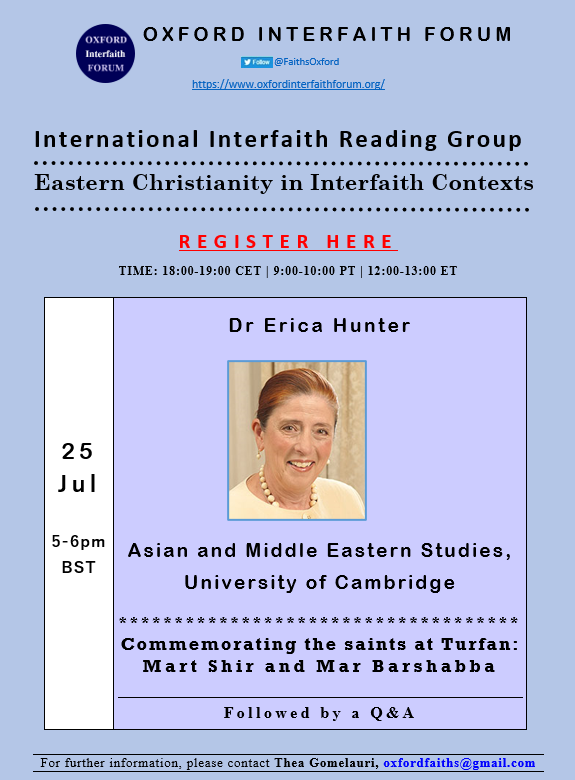
- The Opening Prayers of Saint Gregory of Narek’s Book of Lamentations
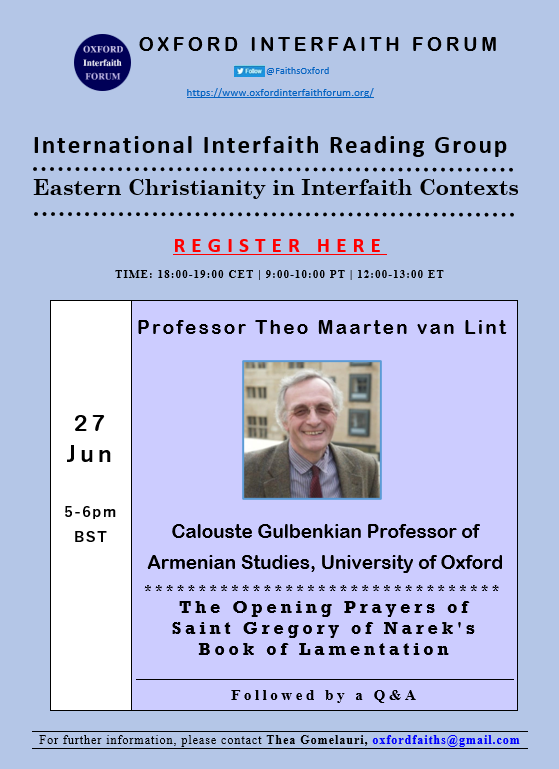
- Alexander Schmemann on Theotokos vis-à-vis Kali a Hindu Mother Goddess
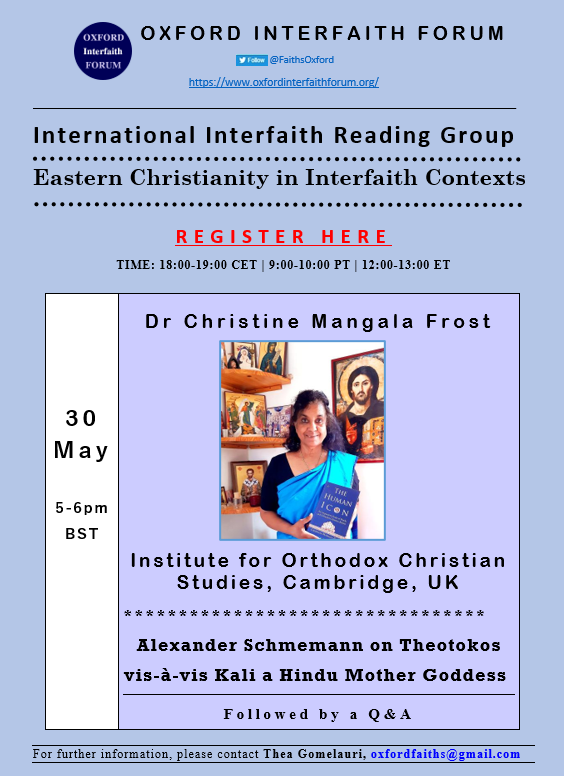
- Enoch and the Fallen Angels in the Ethiopian Tradition
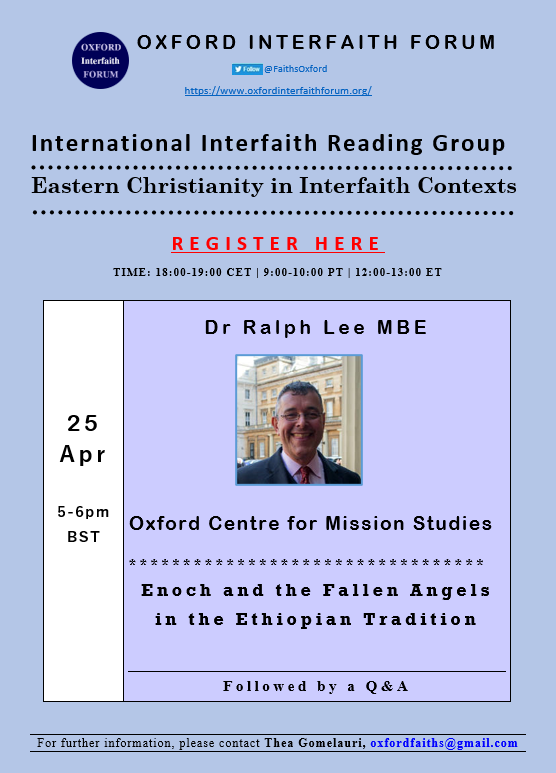
- Narsai on the Virgin Mary
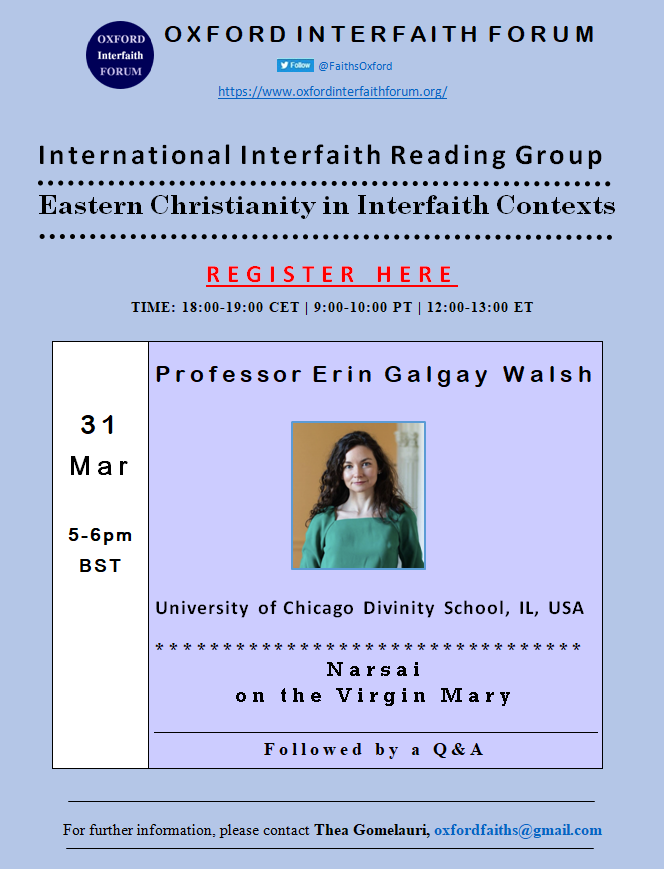
- An Anonymous Syriac Dialogue between Mary and the Angel
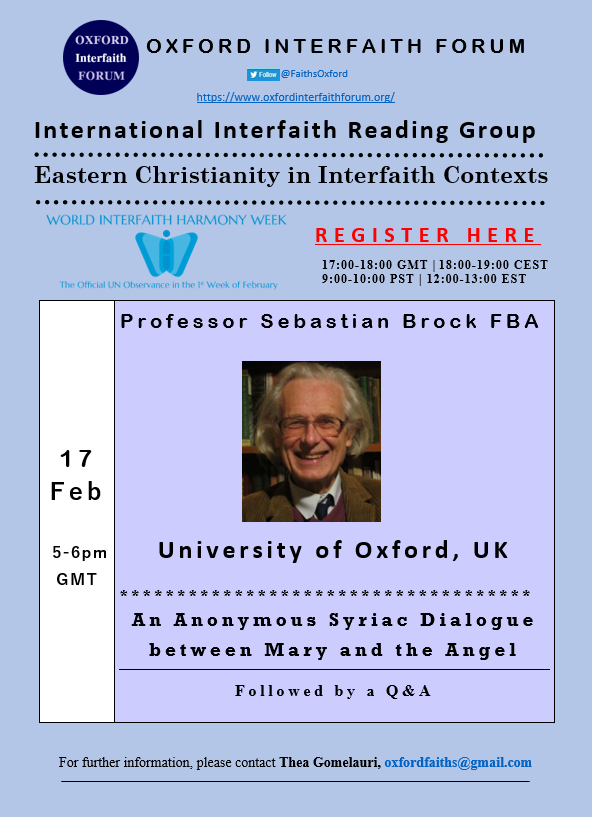
- Dadisho of Qatar: Questioning the Desert Fathers
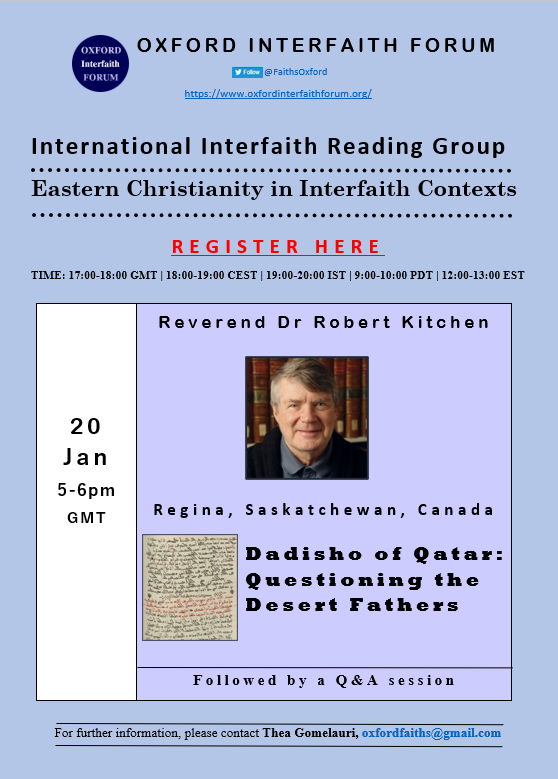
- George the Athonite on Matters of Faith and Rite, According to the Life of St George the Hagiorite
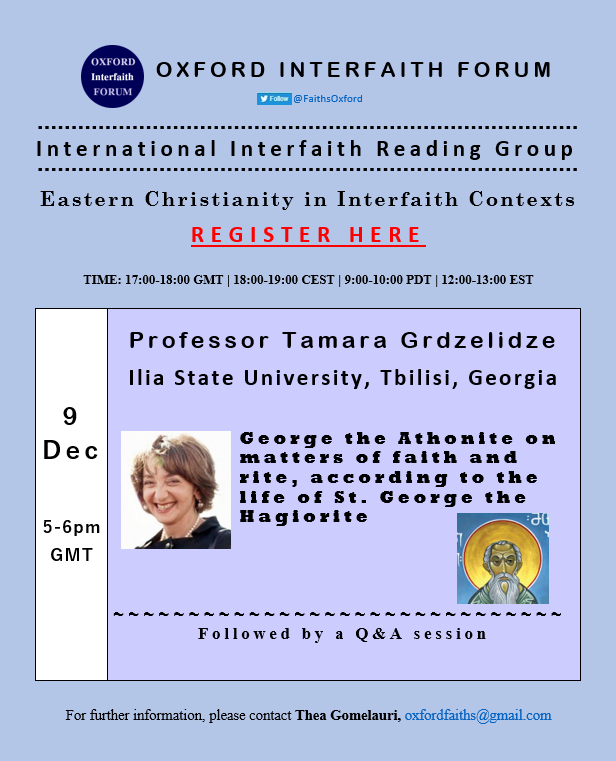
- Temple, Shekhinah and Prayer in Isaac of Nineveh’s III.VIII
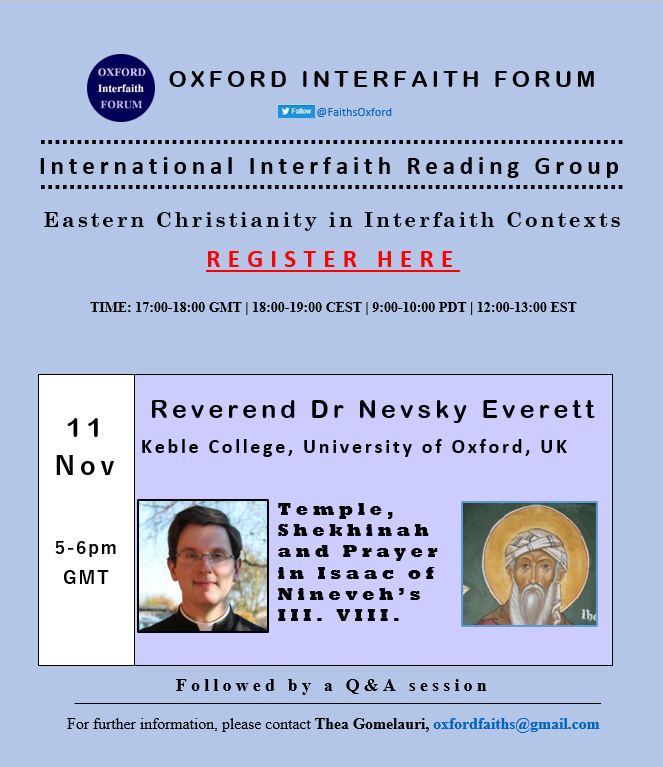
- St. Ephrem’s Commentary on Genesis Ch.3
